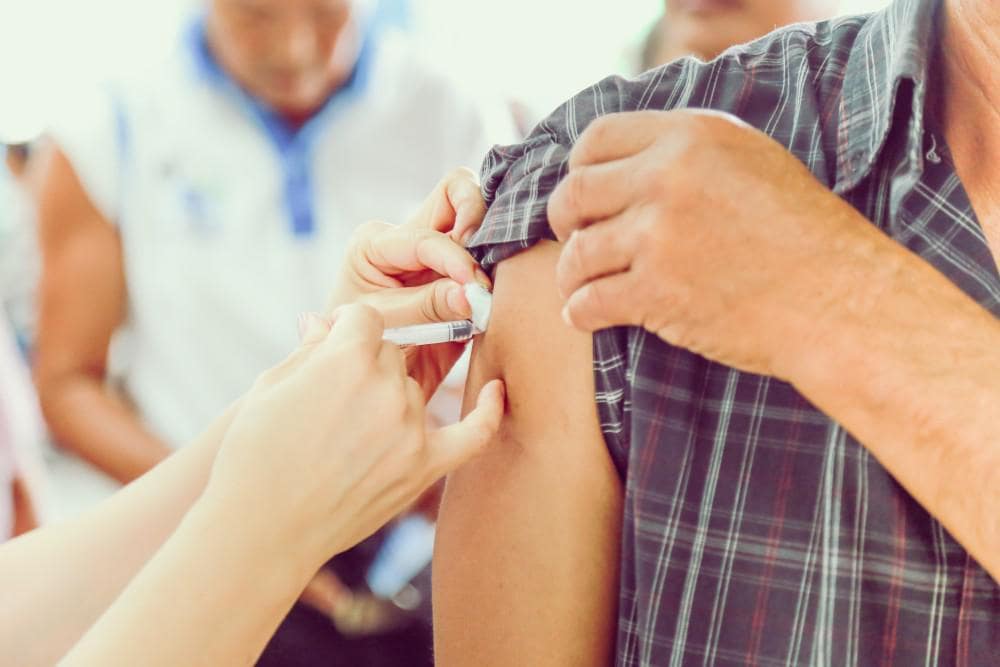As a kid, you probably had a lot of vaccines to help prevent serious illnesses like mumps and measles. But now that you’re an adult, you don’t need to worry about getting vaccines anymore — right? Wrong.
Vaccines help our natural immune system make antibodies to fight off diseases. While some vaccines provide lifelong immunity for specific diseases, other immunizations need “boosters” to renew their efficacy. And some vaccines are specifically for adults, which means you didn’t have them as a child.
August is National Immunization Awareness Month, and that means it’s a perfect time to make sure your own vaccines are up to date. At Family Urgent Care in Chicago, Illinois, and Schererville, Indiana, we offer vaccines for adults as well as kids, providing our patients with the essential protection they need to help prevent serious illness and enjoy better health. Here’s what the CDC recommends for adults of all ages.
Adult vaccination recommendations
Some of the vaccines recommended by the CDC are given as a single dose or a single series. These include:
Shingles vaccine
Shingles is a painful disease that affects your nerves. If you’ve had chickenpox, you can develop shingles as an adult. There are two types of shingles vaccines, one recommended for people 50 or older and one recommended for anyone 60 and up.
Chickenpox vaccine
Speaking of chickenpox (or varicella zoster virus), if you’ve never had this once-common childhood illness and you weren’t vaccinated as a kid, the CDC recommends you get vaccinated as an adult.
HPV vaccine
This vaccine isn’t just for adults — ideally, you’ll have your first HPV vaccine when you’re 11 or 12. Even if you haven’t had the vaccine as a preteen or teen, the CDC still recommends the vaccine for adults up through age 26. From age 27 until age 45, you might still benefit from the vaccine, but you should talk over the risks and benefits with your doctor.
Measles, mumps, and rubella vaccine
Yes, you probably had this vaccine as a kid, but if you were born after 1957, you might need to have it again to ensure you remain immune. One vaccine covers all three diseases in most cases.
Hepatitis A and B vaccines
Hepatitis is a disease that affects the liver. Vaccines for hepatitis A and hepatitis B are given in either two doses or three doses for adults of all ages.
Pneumococcal vaccine
Anyone 65 years old or older should have this vaccine to provide protection from pneumonia. If you had this vaccine before age 65, you’ll probably need another dose.
Meningococcal ACWY and Meningococcal B
This vaccine is recommended for young adults living in dorms or military bases, as well as people with certain health conditions.
While the shots in the previous list are one-time shots or series, the CDC recommends these shots be given on a regular basis:
Flu shot
Every year, a new flu vaccine is developed to battle the most prevalent strain of flu for the current or upcoming flu season. Having a flu shot each year gives your immune system the tools it needs to fight off that strain of flu.
Tdap or Td
The Tdap vaccine protects older kids and adults from tetanus, diphtheria, and pertussis (also called whooping cough). It’s similar to the Dtap vaccine given to babies and kids. The CDC recommends Tdap booster vaccines every 10 years for adults, beginning at age 19. The Td vaccine is similar, but it doesn’t provide protection against whooping cough.
Remember, these are the general recommendations from the CDC. You may need to follow a different vaccination schedule if you:
- Have certain chronic health conditions like heart disease, lung disease, diabetes, kidney disease, or liver disease
- Are pregnant
- Are a healthcare worker
- Plan to travel internationally to specific locations
While vaccines are important for immunity, they’re not always recommended for everyone. People with allergic reactions to vaccine ingredients may need to consider alternative vaccines or delay getting a vaccine.
Getting the vaccines you need
Even with the CDC guidelines, figuring out which vaccines you need can be a little confusing. At Family Urgent Care, we can help you learn which vaccines are recommended for you based on your medical history, your immunization history, your lifestyle, and other factors. Depending on your needs, you can have your vaccines during an annual wellness checkup or you can make an appointment specifically to find out which vaccines you need to maintain optimal health.
Our immune system works hard to keep us healthy — but it does need some help to battle certain diseases. When you’re “missing” vaccines, you could be at an increased risk for serious and even life-threatening illnesses. If your vaccines aren’t up to date, our team can help. To schedule your vaccination checkup at our Chicago or Schererville offices, call or book an appointment online today. We also welcome walk-ins!

